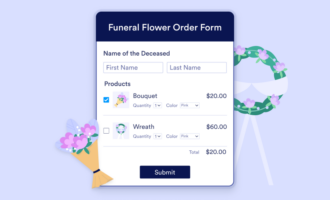How to start an online film festival
We may be living through challenging times, but one of the best ways to move forward is by fostering creativity. Film festivals have been around since Venice hosted the very first one in 1932. Famous festivals — like Cannes, Sundance, and Telluride — bring in thousands of patrons each year and inspire budding filmmakers around the world.
However, as the COVID-19 pandemic keeps the world indoors, you may be wondering how you can start an online film festival without ever having to leave home.
Organizing an online film festival may seem difficult, but with the proper tools, you’ll be listening to your audience’s virtual cheers in no time.
1. Develop your idea
So you have an idea to hold a film festival that will encourage artists around the country (or the world) to submit their work to be screened at your event. Your intentions may seem straightforward, but there are a few questions you should ask yourself before moving any further with your plans:
- Will you restrict who can submit work?
- Restrictions can include age, location, or level of expertise.
- What will the application process entail?
- Will you require a clip of the film for consideration or just a synopsis?
- How will you gather your participants?
- Who will be judging the films?
- What criteria will you use to choose a winner?
- Will you categorize the films and awards?
- How will you sell tickets, and what will you charge?
- How will your audience watch the films?
- Will you show them at specified times, or will you make links to the videos available for your audience to watch at their convenience?
2. Gather applications
Before you can attract an audience, you’ll need to get directors to apply for your festival. The standard film festival application includes an entry fee. Make sure you set deadlines for submissions so filmmakers know exactly how much time they have to prepare their work for critique. It’s common practice to set three deadlines: early, official, and late. The earlier your applicants submit, the lower their entry fee should be. This way, you give filmmakers an incentive to send in their work early — and you can spread out your screening process.
Jotform’s application forms offer an easy way to collect director applications from a single, customizable form. Here are some fields you may consider including:
- Submission type
- Film name
- Synopsis
- Genre
- Writers
- Directors
- Producers
- Main actors
- Runtime
While bigger festivals have directors knocking on their doors, you’ll probably need to do a little more work to get participants. A great place to start is Reddit, where you can post on the official Filmmakers board. You can also check out some relevant Facebook groups. Depending on your qualifications and fees, you could pique the interest of many amateur directors and screenwriters who may not be quite ready for the big leagues.
3. Collect video submissions
Once you gather your applications and decide on a few good films for each of your designated categories, filmmakers should submit their work and a trailer for promotional purposes.
Here’s where a video submission form comes in handy. All filmmakers will have to do is fill out a quick form that usually confirms their legal right to use the work and gives the option to upload the file. It’s important to outline any video specifications to prevent technical issues with submissions.
4. Get the word out
The key to success for most major events starts with marketing. Once you have your submissions, figure out how to advertise your event. One of the easiest ways to create buzz around your festival is through social media marketing on Instagram or Facebook.
Once you’ve come up with the perfect name for your film festival, create social media handles to start the promotion. Here’s where creating a unique name for your festival is important, as you’ll find that many common handles are already in use. You may also want to create a budget for paid ads on Google and Facebook — you can target specific demographics and reach more people who would be interested in attending your event.
5. Collect reservations and payments
Even though your event will be digital, you’ll still need attendees to reserve their spots. Through a simple reservation form, your guests can guarantee their screening and specify whether they will be purchasing a spot for a single day of the festival, a specific category, or the entire event.
You can set ticket prices based on your viewing options, and you can collect payments through one of Jotform’s payment forms. You’ll have the freedom to offer payments through a variety of methods, such as PayPal, Square, Stripe, and Authorize.Net. The best part is that Jotform doesn’t charge any fees for collecting payments, so you don’t have to worry about this eating into your profits.
6. Set up the proper technology
Now that you have an audience excited to screen your films, you have to make the viewing process as seamless as possible. Many online film festivals use a password-protected screener. When someone purchases a ticket, they get a unique password to access the films through a protected link. You can upload your videos to a streaming platform like YouTube or Vimeo where you can set up password protection to prevent those who haven’t paid from viewing them.
If you’d like your festival to run live, you can plan a whole day of live streaming through platforms like YouTube, Vimeo, Twitch, and Eventive. Depending on how much money you’re looking to spend, a paid subscription could be worth the cost if you plan to hold your event each year.
On the day of your online film festival, you can enjoy all the fun of an in-person event from the comfort of your living room. It’s a good idea to send a follow-up survey to your participants after the event to make any improvements for next year. Enjoy the show — and don’t forget the popcorn.



























































Send Comment: